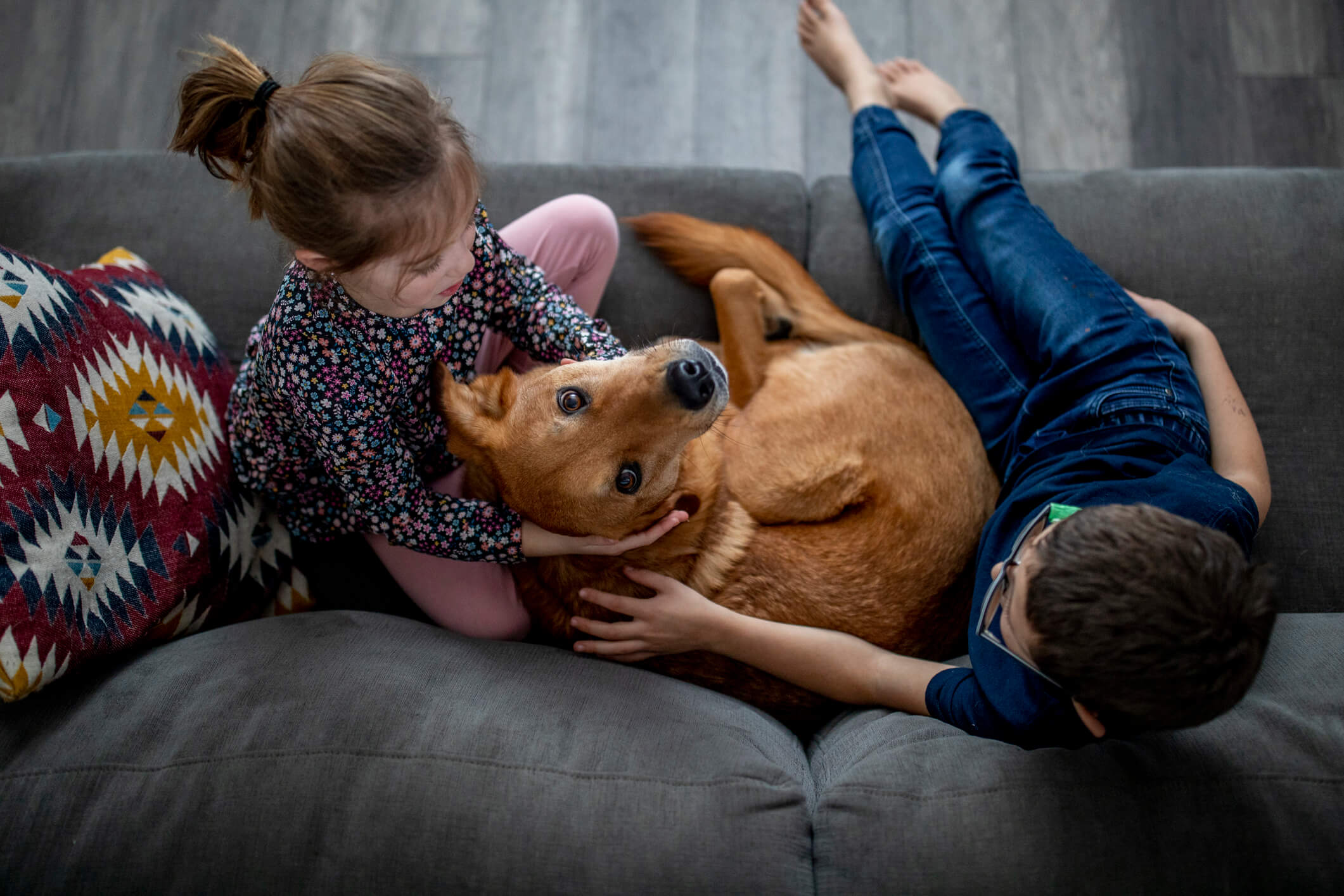
How to Choose the Best Pet for Your Family
Pets bring a new energy and brightness to your home that can’t be matched. If you’ve decided to add a new friend to your household, you might be eager to pick one out immediately! However, you’ll want to take several considerations into account before you do.
For example, some pets aren’t great around kids, while others love being around them. Where you live and how active you are should also be considered. These considerations shouldn’t discourage you from getting a pet but should instead guide you toward choosing the perfect one. Contemplating the right pet for your family ensures that everyone stays happy—your new pet, existing pets, your children and you—and that there isn’t an unnecessary stress involved.
Before you adopt, ask yourself these important questions.
Do you have children?
One of the first things you should consider is a pet’s compatibility with children in your household. If you’ve gone to an adoption center and fallen in love with an animal who isn’t great with children, then it’s best to move on. Bringing home a pet that isn’t good with children might put your kids or the pet at risk.
Talk to your children about potential pets and see what kind of animal they’d enjoy. There are plenty of dog breeds that are known for being great family pets, including Beagles, Golden Retrievers and some terrier breeds. Cats can also find loving homes in households with children, but be mindful of your kids’ ages. Young toddlers might not respect your cat’s boundaries and cause stress.
Does anyone in your family have allergies?
Before you go out and get a pet, you might want to consider having your household members take allergy tests. These tests can help determine what types of animals would work well in your household. If you end up having an allergy to cats or dogs, you probably don’t want to be sneezing all day, every day!
Even if you are allergic to dogs or cats, there are a variety of hypoallergenic breeds out there, including the Chinese Crested and Irish Water Spaniel dogs and Devon Rex cats. However, getting one of these breeds doesn’t automatically ensure that your allergies won’t act up while you’re around them—it just reduced the risk of allergy flare-ups.
How active are you?
Certain pets need a much more active lifestyle than others. Large dog breeds like Siberian Huskies and German Shepherds require plenty of exercise. If you are in a position where you can’t routinely walk or play with your dog, then you may want to choose a smaller breed or a cat.
Dog breeds that require less exercise include Bulldogs, Basset Hounds, Chihuahuas and Pugs. Even if you get a pet that doesn’t require much exercise, though, you still want to make sure they get some exercise frequently. Exercise is important to maintaining your pet’s overall health and ensuring they live a happy life.
Where do you live?
Your living space will greatly affect what kind of pet you can accommodate. If you live in a smaller studio apartment, then a small-breed dog or cat might be your best option. Large-breed dogs are better suited to single-family homes with yards where they can run.
Where you live doesn’t have to dictate what pet you adopt. However, you should consider the space’s limitations and be prepared to accommodate your pet’s needs if your home doesn’t.

How often are you at home?
Many pets require a lot of attention and companionship, especially dogs. While some cats may need less attention than dogs, cats still need plenty of affection from their owners. Showing your cat and dog attention is important to maintaining their overall wellbeing and mood.
If you are working or out of the home for the majority of the day and plan on leaving your pet alone, then it’s best to get a pet that doesn’t require as much attention or waiting until your lifestyle allows you to give a pet the affection they deserve.
How much are you prepared to spend?
Caring for a pet comes with a lot of costs. The price of healthy pet food, veterinarian bills, toys, medication and more should all be taken into consideration. As a general rule, cats tend to be less expensive than dogs. However, cats also have lots of routine expenses like litter.
That being said, owning a dog or cat can be quite affordable. Preventative care and homemade toys and treats are good ways of cutting costs. Plan out a monthly pet budget and consider costs for emergencies to determine what you can afford to spend on a pet. You can learn more about potential pet care costs by talking to a veterinarian or adoption center specialist.
Make sure your pet is perfect for your home
Taking time to determine which pet is right for your home is the best way to ensure that everyone is happy and healthy for your pet’s entire life. If you’re still unsure, speak with a veterinarian or adoption specialist about which pets might be right for you.
After taking these factors into consideration, you’ll be ready to choose the right furry member of your family!


